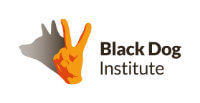
About MoodGYM
MoodGYM is a popular and extensively researched interactive program with over 800,000 registrants, developed and designed by staff at the National Institute for Mental Health Research (NIMHR).
MoodGYM has a manual available for therapists who would like to use the program in their work. Users complete symptom quizzes at the end of each module which can be printed out to discuss with therapists.
MoodGYM was originally designed to prevent depression in young people, but research has shown that it can also be helpful for people of different age groups and can help people tackle their symptoms. Research has also shown that it can help reduce anxiety symptoms and build resilience.
MoodGYM is highly structured and integrates mental health literacy, assessments, self-help strategies, and exercises.
Who is MoodGYM for?
MoodGYM was originally designed for young people between 15 to 25 years of age, however, the MoodGYM program has been found to be effective in reducing symptoms of depression in older age groups. MoodGYM is described as being suitable for users 16 years and older. MoodGYM is also available in German at moodgym.de.
What services does MoodGYM offer?
MoodGYM is an interactive program that intends to help it’s users to manage symptoms of depression and anxiety. It teaches strategies drawn from Cognitive Behaviour Therapy (also known as CBT). It has 5 modules that each take about 30 minutes to complete. The 5 modules are as follows:
Module 1 – Feelings
Module 2 – Thoughts
Module 3 – Unwarping
Module 4 – Destressing
Module 5 – Relationships
Is there a cost to use MoodGYM?
No. MoodGYM is delivered free of charge to all Australians thanks to funding supplied by the Australian Commonwealth Department of Health.
When can MoodGYM be accessed?
MoodGYM can be accessed at any time through their website here. The modules are self-directed and can be worked through at your own pace.
How to access MoodGYM’s services
Users registering for MoodGYM need to provide a username, email address, age category, gender, country, rural/remote, education, history of depression, and referral status (e.g. by a psychologist, GP etc.).
MoodGYM Research and Evaluation
MoodGYM has been shown to be effective in reducing depressive and anxiety symptoms in users in a large number of published research trials undertaken by research groups within and outside of Australia. These include studies: in a range of settings (e.g., schools, universities, Lifeline, NHS Choices online); across the mental health care spectrum (from prevention to treatment); with different age groups (adults, adolescents); with a range of population groups (e.g. students, primary care patients, community users); in different countries; and with and without guidance.
Studies have also reported MoodGYM to be effective in reducing hazardous alcohol use, and in improving wellbeing and quality of life in users. User satisfaction of MoodGYM is high, and evaluation studies suggest that MoodGYM is a viable option for those who cannot access face-to-face therapy, and for those waiting for traditional services. There is also demonstrated cost effectiveness of translating MoodGYM, which currently operates in two languages.
For a list of publications, visit the MoodGYM website.
References:
- Batterham, P. J., Neil, A. L., Bennett, K., Griffiths, K. M., & Christensen, H. (2008). Predictors of adherence among community users of a cognitive behavior therapy website. Patient Prefer Adherence, 2, 97-105.
- Bennett, K., Reynolds, J., Christensen, H., & Griffiths, K. M. (2010). e-hub: an online self-help mental health service in the community. Med J Aust, 192(11 Suppl), S48-52. Retrieved from https://www.ncbi.nlm.nih.gov/pubmed/20528710
- Brabyn, S., Araya, R., Barkham, M., Bower, P., Cooper, C., Duarte, A., . . . Gilbody, S. (2016). The second Randomised Evaluation of the Effectiveness, cost-effectiveness and Acceptability of Computerised Therapy (REEACT-2) trial: does the provision of telephone support enhance the effectiveness of computer-delivered cognitive behaviour therapy? A randomised controlled trial. Health Technol Assess, 20(89), 1-64. doi: 10.3310/hta20890
- Brijnath, B., Protheroe, J., Mahtani, K. R., & Antoniades, J. (2016). Do Web-based Mental Health Literacy Interventions Improve the Mental Health Literacy of Adult Consumers? Results From a Systematic Review. J Med Internet Res, 18(6), e165. doi: 10.2196/jmir.5463
- Burns, J., & Birrell, E. (2014). Enhancing early engagement with mental health services by young people. Psychol Res Behav Manag, 7, 303-312. doi: 10.2147/PRBM.S49151
- Calear, A. L., Christensen, H., Mackinnon, A., & Griffiths, K. M. (2013). Adherence to the MoodGYM program: outcomes and predictors for an adolescent school-based population. J Affect Disord, 147(1-3), 338-344. doi: 10.1016/j.jad.2012.11.036
- Calear, A. L., Christensen, H., Mackinnon, A., Griffiths, K. M., & O’Kearney, R. (2009). The YouthMood Project: a cluster randomized controlled trial of an online cognitive behavioral program with adolescents. J Consult Clin Psychol, 77(6), 1021-1032. doi: 10.1037/a0017391
- Christensen, H., Griffiths, K., Groves, C., & Korten, A. (2006). Free range users and one hit wonders: community users of an Internet-based cognitive behaviour therapy program. Aust N Z J Psychiatry, 40(1), 59-62. doi: 10.1080/j.1440-1614.2006.01743.x
- Christensen, H., Griffiths, K. M., & Jorm, A. F. (2004). Delivering interventions for depression by using the internet: randomised controlled trial. BMJ, 328(7434), 265. doi: 10.1136/bmj.37945.566632.EE
- Christensen, H., Griffiths, K. M., & Korten, A. (2002). Web-based cognitive behavior therapy: analysis of site usage and changes in depression and anxiety scores. J Med Internet Res, 4(1), e3. doi: 10.2196/jmir.4.1.e3
- Christensen, H., Griffiths, K. M., Korten, A. E., Brittliffe, K., & Groves, C. (2004). A comparison of changes in anxiety and depression symptoms of spontaneous users and trial participants of a cognitive behavior therapy website. J Med Internet Res, 6(4), e46. doi: 10.2196/jmir.6.4.e46
- Donker, T., Batterham, P. J., Warmerdam, L., Bennett, K., Bennett, A., Cuijpers, P., . . . Christensen, H. (2013). Predictors and moderators of response to internet-delivered Interpersonal Psychotherapy and Cognitive Behavior Therapy for depression. J Affect Disord, 151(1), 343-351. doi: 10.1016/j.jad.2013.06.020
- Donker, T., Bennett, K., Bennett, A., Mackinnon, A., van Straten, A., Cuijpers, P., . . . Griffiths, K. M. (2013). Internet-delivered interpersonal psychotherapy versus internet-delivered cognitive behavioral therapy for adults with depressive symptoms: randomized controlled noninferiority trial. J Med Internet Res, 15(5), e82. doi: 10.2196/jmir.2307
- Dorow, M., Stein, J., Forster, F., Lobner, M., Franz, M., Gunther, R., . . . Riedel-Heller, S. G. (2018). [Implementation of the Internet-Based Self-Management Program “moodgym” in Patients with Depressive Disorders in Inpatient Clinical Settings – Patient and Expert Perspectives]. Psychiatr Prax, 45(5), 256-262. doi: 10.1055/s-0043-117049
- Eells, T. D., Barrett, M. S., Wright, J. H., & Thase, M. (2014). Computer-assisted cognitive-behavior therapy for depression. Psychotherapy (Chic), 51(2), 191-197. doi: 10.1037/a0032406
- Gilbody, S., Brabyn, S., Lovell, K., Kessler, D., Devlin, T., Smith, L., . . . collaborative, R. (2017). Telephone-supported computerised cognitive-behavioural therapy: REEACT-2 large-scale pragmatic randomised controlled trial. Br J Psychiatry, 210(5), 362-367. doi: 10.1192/bjp.bp.116.192435
- Gilbody, S., Littlewood, E., Hewitt, C., Brierley, G., Tharmanathan, P., Araya, R., . . . Team, R. (2015). Computerised cognitive behaviour therapy (cCBT) as treatment for depression in primary care (REEACT trial): large scale pragmatic randomised controlled trial. BMJ, 351, h5627. doi: 10.1136/bmj.h5627
- Griffiths, K. M., & Christensen, H. (2007). Internet-based mental health programs: a powerful tool in the rural medical kit. Aust J Rural Health, 15(2), 81-87. doi: 10.1111/j.1440-1584.2007.00859.x
- Healey, B. J., Griffiths, K. M., & Bennett, K. (2017). The effect of programme testimonials on registrations for an online cognitive behaviour therapy intervention: a randomised trial. Digit Health, 3, 2055207617729937. doi: 10.1177/2055207617729937
- Hoifodt, R. S., Lillevoll, K. R., Griffiths, K. M., Wilsgaard, T., Eisemann, M., Waterloo, K., & Kolstrup, N. (2013). The clinical effectiveness of web-based cognitive behavioral therapy with face-to-face therapist support for depressed primary care patients: randomized controlled trial. J Med Internet Res, 15(8), e153. doi: 10.2196/jmir.2714
- Hoifodt, R. S., Mittner, M., Lillevoll, K., Katla, S. K., Kolstrup, N., Eisemann, M., . . . Waterloo, K. (2015). Predictors of Response to Web-Based Cognitive Behavioral Therapy With High-Intensity Face-to-Face Therapist Guidance for Depression: A Bayesian Analysis. J Med Internet Res, 17(9), e197. doi: 10.2196/jmir.4351
- Iakimova, G., Dimitrova, S., & Burte, T. (2017). [Can we do therapy without a therapist? Active components of computer-based CBT for depression]. Encephale, 43(6), 582-593. doi: 10.1016/j.encep.2016.08.006
- Lillevoll, K. R., Vangberg, H. C., Griffiths, K. M., Waterloo, K., & Eisemann, M. R. (2014). Uptake and adherence of a self-directed internet-based mental health intervention with tailored e-mail reminders in senior high schools in Norway. BMC Psychiatry, 14, 14. doi: 10.1186/1471-244X-14-14
- Lintvedt, O. K., Griffiths, K. M., Eisemann, M., & Waterloo, K. (2013). Evaluating the translation process of an Internet-based self-help intervention for prevention of depression: a cost-effectiveness analysis. J Med Internet Res, 15(1), e18. doi: 10.2196/jmir.2422
- Lobner, M., Stein, J., Rost, T., Forster, F., Dorow, M., Keller, J., . . . Riedel-Heller, S. G. (2017). [Innovative E-Health Approaches for Comorbid Depression in Patients with Obesity: Patient and Expert Perspectives on User Acceptance]. Psychiatr Prax, 44(5), 286-295. doi: 10.1055/s-0043-107471
- Neil, A. L., Batterham, P., Christensen, H., Bennett, K., & Griffiths, K. M. (2009). Predictors of adherence by adolescents to a cognitive behavior therapy website in school and community-based settings. J Med Internet Res, 11(1), e6. doi: 10.2196/jmir.1050
- O’Kearney, R., Gibson, M., Christensen, H., & Griffiths, K. M. (2006). Effects of a cognitive-behavioural internet program on depression, vulnerability to depression and stigma in adolescent males: a school-based controlled trial. Cogn Behav Ther, 35(1), 43-54. doi: 10.1080/16506070500303456
- O’Kearney, R., Kang, K., Christensen, H., & Griffiths, K. (2009). A controlled trial of a school-based Internet program for reducing depressive symptoms in adolescent girls. Depress Anxiety, 26(1), 65-72. doi: 10.1002/da.20507
- Phillips, R., Schneider, J., Molosankwe, I., Leese, M., Foroushani, P. S., Grime, P., . . . Thornicroft, G. (2014). Randomized controlled trial of computerized cognitive behavioural therapy for depressive symptoms: effectiveness and costs of a workplace intervention. Psychol Med, 44(4), 741-752. doi: 10.1017/S0033291713001323
- Powell, J., Hamborg, T., Stallard, N., Burls, A., McSorley, J., Bennett, K., . . . Christensen, H. (2012). Effectiveness of a web-based cognitive-behavioral tool to improve mental well-being in the general population: randomized controlled trial. J Med Internet Res, 15(1), e2. doi: 10.2196/jmir.2240
- Rozbroj, T., Lyons, A., Pitts, M., Mitchell, A., & Christensen, H. (2015). Improving self-help e-therapy for depression and anxiety among sexual minorities: an analysis of focus groups with lesbians and gay men. J Med Internet Res, 17(3), e66. doi: 10.2196/jmir.4013
- Topolovec-Vranic, J., Cullen, N., Michalak, A., Ouchterlony, D., Bhalerao, S., Masanic, C., & Cusimano, M. D. (2010). Evaluation of an online cognitive behavioural therapy program by patients with traumatic brain injury and depression. Brain Inj, 24(5), 762-772. doi: 10.3109/02699051003709599
- Twomey, C., & O’Reilly, G. (2017). Effectiveness of a freely available computerised cognitive behavioural therapy programme (MoodGYM) for depression: Meta-analysis. Aust N Z J Psychiatry, 51(3), 260-269. doi: 10.1177/0004867416656258
- Twomey, C., O’Reilly, G., Byrne, M., Bury, M., White, A., Kissane, S., . . . Clancy, N. (2014). A randomized controlled trial of the computerized CBT programme, MoodGYM, for public mental health service users waiting for interventions. Br J Clin Psychol, 53(4), 433-450. doi: 10.1111/bjc.12055
- Wilhelmsen, M., Hoifodt, R. S., Kolstrup, N., Waterloo, K., Eisemann, M., Chenhall, R., & Risor, M. B. (2014). Norwegian general practitioners’ perspectives on implementation of a guided web-based cognitive behavioral therapy for depression: a qualitative study. J Med Internet Res, 16(9), e208. doi: 10.2196/jmir.3556
- Wilhelmsen, M., Lillevoll, K., Risor, M. B., Hoifodt, R., Johansen, M. L., Waterloo, K., . . . Kolstrup, N. (2013). Motivation to persist with internet-based cognitive behavioural treatment using blended care: a qualitative study. BMC Psychiatry, 13, 296. doi: 10.1186/1471-244X-13-296





